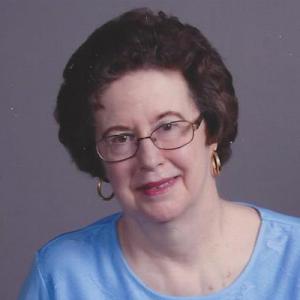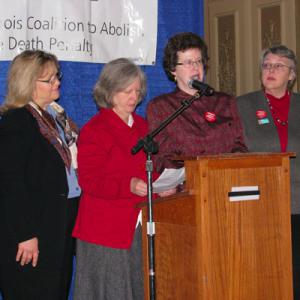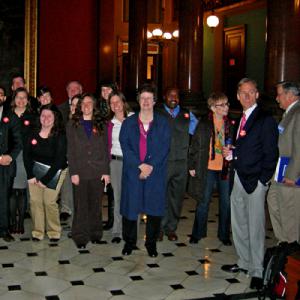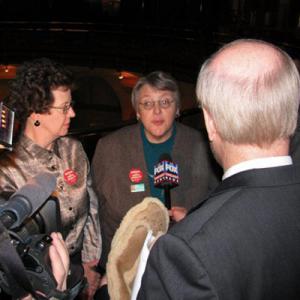Death Penalty Abolitionist Gail Rice to be Featured on CUTV News Radio
PALOS HEIGHTS, ILLINOIS, UNITED STATES, September 26, 2019 /EINPresswire.com/ -- In 1997, Gail Rice’s life changed radically when her brother, Bruce VanderJagt, a Denver policeman, was murdered by a skinhead. Bruce was trying to apprehend the skinhead and a woman accomplice as they were fleeing a burglary. The skinhead, Matthaeus Jaehnig, shot Bruce with ten bullets from an assault rifle, killing him instantly. Jaehnig eventually committed suicide with Bruce’s service revolver.
Had Jaehnig lived, he would have been convicted of murder and sentenced to death in Colorado.
Rice already opposed the death penalty at that time. Nineteen years of literacy and ministry work in jails and prisons had convinced her that there was a very different standard of justice for the rich and the poor in this country, and so she believed that the death penalty could never be applied fairly. But one year after the murder, she met the group Murder Victims’ Families for Reconciliation (MVFR), a death penalty abolition group for victims’ family members and the family members of those who had been executed or who were on death row. Their motto was “Not in our name.” Having experienced the horror of murder, these people did not want the state to murder in their name.
“Until I met MVFR people, I was not aware that there was a growing movement of victims’ family members who actively opposed the death penalty,” recalls Rice. “After I grew to know many MVFR people, I found my opposition to the death penalty deepening far beyond my concern about fairness in the system.”
Meeting several innocent people who had been exonerated from death row in the U.S. greatly concerned Rice. The risk of executing an innocent person is very real. DNA evidence has led to many exonerations, but it isn’t available in most cases. Since 1973, there have been 165 exonerations in the United States.
“As I studied the issue more, I discovered that there was no evidence that the death penalty was a deterrent to serious crime,” says Rice. “States without the death penalty have lower murder rates than states with the death penalty. The likelihood of life without parole is more of a deterrent than the small possibility of the death penalty.”
What troubled Rice most, however, was how the death penalty conflicted with her Christian beliefs.
“For me, my Christian faith has been the strongest motivation for me to work for abolition,” says Rice. “People are tempted to decide that some people are not redeemable and do not deserve forgiveness, reconciliation or restoration. Jaehnig was a person who had been created in the image of God. If I viewed murderers as no longer being fit to live, setting aside their humanity, I would not only be denying one of the core beliefs of my Christian faith, I would also be holding the same attitude that many murderers hold in perpetrating their crimes, who don’t feel as though their victims’ lives are valuable. And I never want to become like that.”
Rice says she believes the death penalty is carried out primarily against the poorest and most vulnerable of society.
“The death penalty makes a mockery of God’s care for the poor and the powerless,” says Rice. “It is unthinkable that Jesus Christ would endorse the killing of others to prove that killing is wrong. The death penalty is a violent act of retribution and revenge.”
Many people have not been told the real facts about the death penalty, Rice feels. According to her, the reason the death penalty is supported by both prosecutors and politicians is because they think it is necessary and helpful for the loved ones of those who have been murdered. Rice says it’s quite the opposite: the death penalty is a terrible burden for murder victims’ family members.
“In my 21 years of abolition work, I’ve never heard one person say, ‘I’m so glad that the execution took place. Now I’m at peace. I finally have closure,’” says Rice. “Instead, they lament the whole process, which has caused them so much pain and misery. The idea that executions help or heal victims’ family members is an absolute lie, and that’s what I will always tell murder victims’ family members as I continue my work to repeal the death penalty in the U.S.”
CUTV News Radio will feature Gail Rice in an interview with Jim Masters on September 30th at 2pm EDT
Listen to the show on BlogTalkRadio
If you have any questions for our guest, please call (347) 996-3389
For more information or to get involved, visit the Death Penalty Information Center at www.deathpenaltyinfo.org and Equal Justice at www.ejusa.org
Lou Ceparano
CUTV News
(631) 850-3314
email us here
Visit us on social media:
Facebook
Legal Disclaimer:
EIN Presswire provides this news content "as is" without warranty of any kind. We do not accept any responsibility or liability for the accuracy, content, images, videos, licenses, completeness, legality, or reliability of the information contained in this article. If you have any complaints or copyright issues related to this article, kindly contact the author above.




